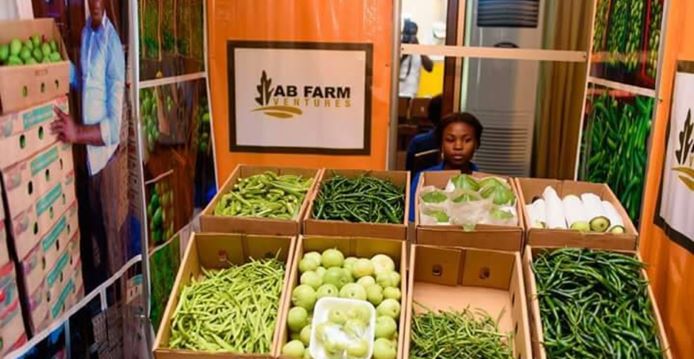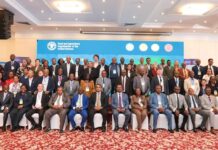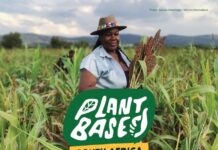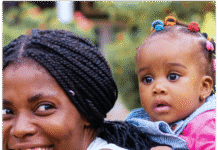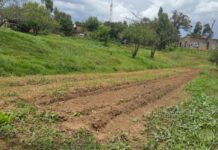Ghana’s vegetable exports continue after improvements to its SPS capabilities
By Dr Dennis Rangi – Director General – Development, CABI
Like many of my fellow Africans, I proceed into 2019 with renewed optimism whilst knowing there is still a great deal of work ahead and progress to be made if we are to improve our welfare in a sustainable manner. We look forward to helping our continent ensure its food and nutrition security for the 1.2 billion mouths we must continue to feed.
The CABI Africa Member Governments’ Meeting in Botswana this month (25 to 28 February) is a time for reflection on past and present partnerships but it also presents a huge opportunity to look at new ways of working. I believe more can and must be done if we are to ensure our food security and protect the livelihoods of more than 500 million smallholder farmers who help feed us.
The meeting will see government representatives from 22 African countries, joining delegates from 14 partner organisations – such as the African Union Commission (AUC), the Southern Africa Development Community (SADC), Common Market for Eastern and Southern Africa (COMESA), the African Development Bank (AfDB) and other Regional Economic Communities (RECs) – to discuss how we can work better together to support millions of farmers to grow more and lose less to agricultural pests and diseases.
As a continent we have around 930 million hectares of land suitable for agricultural production – an area larger than the USA – but more than half of it remains relatively inaccessible to good roads and markets. Africa has a wealth of untapped resources but a fragile infrastructure and challenging physical and political climates.
There are many aspects to tackling food security and this includes an often-overlooked need to strengthen the food value chain and trade links through better Sanitary and Phytosanitary (SPS) processes. Without these, we cannot hope to improve plant health and food safety. Food may need to come from a pest/disease free area, or require in depth inspection or specific treatment or processing to ensure only safe levels of chemicals in the food – protecting both producer and the consumer. The rigorous application of such international SPS standards ensures the production, processing and trade of safe, high quality food. As a result, agricultural productivity will increase, value will be added to our goods, rural economies will be diversified and smallholder household incomes farmers will be assured and increased.
The World Trade Organisation SPS Agreement sets out basic rules for the use of SPS measures, which are certainly needed to ensure trade is safe, but often a lack of information, knowledge or institutional capacity results in inability for countries to reduce hazards and consequently to improve their access to lucrative markets. In some cases, countries have implied the phytosanitary threats have been mistakenly overestimated, creating (un)intentional trade barriers. In other cases, the risks are clear but there is inadequate ability in the value chains to manage and mitigate them. Inefficiencies in regulatory agencies may further increase the cost of trading – creating so called procedural obstacles. Many of these problems are rooted in lack of knowledge and technical capacity.

Africa is making great strides towards enhancing its SPS capabilities and CABI continues to play a role in helping countries create systems which help protect them from the entry, establishment and spread of exotic pests. One example of this is our involvement in building stronger African food security in the Africa Plant Biosecurity Network which includes the 35 African biosecurity ‘champions’. These are important ‘actors’ who are helping to improve food security and safe regional trade throughout Africa.
We have also helped to lift the 2015 ban on vegetable exports from Ghana – worth $15 million a year – which had been imposed by the Directorate-General for Health and Food Safety of the European Commission. Working with partners including the Plant Protection and Regulatory Services Directorate (PPRSD) of the Ministry of Food and Agriculture, Ghana, and the Ghana Association of Vegetable Exporters (GAVEX), CABI has helped streamline the country’s inspection and export certification as part of improving its phytosanitary systems. This project is promoting good agricultural practices in the vegetable production chain; is reviewing standard operation procedures (SOPs) for inspection and production to conform to destination countries’ plant health requirements and is equipping laboratories for the inspectors. Thanks to these efforts, the ban was lifted in January 2018.
CABI is also working with partners in other countries to enhance market access in the African region and globally. For example, we are building the capability of National Plant Protection Organizations (NPPOs), producers and exporters of horticultural commodities in order to meet international SPS and export market requirements. Furthermore, we are supporting strengthening of Public Private Partnerships to carry out integrated pest management along commodity value chains and are not just relying on end point inspection by when it might be too late.
To this end, we are looking to work closely with TradeMark East Africa (TMEA) to help scale up improved access to trade and scientific information. Key to this is the integration of SPS databases to the SPS agency systems implemented by TMEA, the development of SPS regional information sharing platforms and the advancement of ICT systems to increase traceability and regional tracking of agricultural produce.
Ultimately, I believe the aim for better SPS measures will not only lead to more exports of African goods to international markets such as Europe and other parts of the world but also within Africa itself. The Tripartite non-tariff barrier reporting and monitoring mechanism (www.tradebarriers.org) stemming from the Tripartite Trade Capacity Building Programme is an excellent step forward in this respect. As well as improving reporting of non-tariff barriers, this programme also has the important task of reducing or removing barriers to trade. Kenya and China signed a MoU on Sanitary and Phytosanitary (SPS) measures last year – the signing comes in the wake of concerns in Kenya and more generally the rest of Africa of the rising trade imbalance in favour of China. Yet one of the reasons for this trade imbalance is the failure of African countries to meet the Sanitary and Phytosanitary Standards of the export markets. The recently signed African Continental Free Trade Area (AfCFTA) by African Heads of State bringing together 1.2 billion people with a combined gross domestic product (GDP) of more than 2 trillion US Dollars presents a big opportunity but compliance to standards remains key to its success.
And what about the millions of smallholders I mentioned earlier?
CABI’s flagship programme, Plantwise, helps smallholder farmers through its network of plant clinics; providing essential and practical advice on how to deal with pests and diseases on their farms. Doing this means mobilising more than just agricultural advisory services in rural areas, it means developing a country’s entire plant health system which includes researchers, policy makers, input suppliers, farmer organizations, NGOs, and more. Plantwise builds institutional capacity to ensure that countries are better equipped to deal with pest outbreaks as a whole. Plant health systems development helps to ensure countries make agricultural production sustainable in the long-term.
But how do farmers tackle crop pests and diseases after diagnosis? CABI advocates the use of more sustainable and environmentally friendly management of agricultural pests and diseases, including new incursions like the fall armyworm, to enable smallholders to become more competitive and thereby access local, regional and international markets. However, in many cases, management practices come at a higher financial cost to the already cash-strapped smallholder.
We must formulate ways of making the sustainable management of pests and diseases much more affordable for smallholders who might otherwise go without protection for their valuable crops. Effective, low cost management at the production end of the value chain will help reduce the pressure on ensuring SPS compliance further along the food chain.
Having worked with farmers to produce the quality produce demanded by the market in Plantwise and other initiatives, it is crucial to link these producers with the market and ensure an efficient and functional value chain with both public and private sector players. Providing timely, pragmatic and actionable agricultural husbandry advice and market information, building the capacity of stakeholders, are roles that CABI has played around the world, as well as monitoring and quantifying impact of the improved interventions.
Whatever the solution, and I know there is no easy answer, I believe my African brothers and sisters want an equal place at the ‘World’s food table’. I believe they want to build their own capacity and capability for better and resilient value chains through enhanced SPS measures. There is no question that if the World’s 500 million smallholder farmers can trade more and better-quality produce, they’ll be able to improve their lives, while contributing to meeting the increasing global demand for food.
Dr Rangi has over 30 years of experience in development cooperation including management of scientific research & implementation. He has fulfilled several assignments in developing countries and has a strong understanding of their circumstances and needs.



